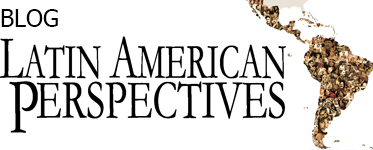COVID-19 in El Paso: A Spectacle of Injustice
COVID-19 in El Paso: A Spectacle of Injustice By Amy Reed-Sandoval The French philosopher Michel Foucault famously described the nature of a “spectacle” in Discipline and Punish, in which he explored 18th century public executions in France. The purpose of spectacle, he argued, is “to bring into play…the dissymmetry between the subject who has dared to violate the law and the all-powerful sovereign who displays his strength.” Such “Foucauldian spectacles” are about inequality and, above all else, power. Despite the various forces striving to invisibilize COVID-19 as much as possible, COVID-19 has become, I argue, a Foucauldian spectacle in the U.S.-Mexico border city of El Paso, Texas, which is now being described as the COVID-19 epicenter in the United States. We need to study this heart-breaking spectacle in order to learn vital lessons from it. First, let’s establish what’s being seen: devastating images of ten mobile morgues set up outside the El Paso medical examiner’s office, and circulated photos of prisoners carrying corpses into those very refrigerated trailers. El Paso’s grand convention center was converted into a makeshift medical center, while overrun hospitals have set up “heated isolation tents” to serve even more of the gravely ill. Some patients are being airlifted out [...]



